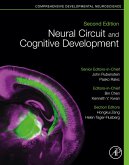There is no work that develops this theme from such a plural and pragmatic perspective, covering all the dimensions of loneliness in each of the thematic axes: psychological, neurological, social, and health. Readers are provided feedback for all the knowledge for a comprehensive scientific knowledge based on evidence and given the necessary instrumental skills related to being social and the functioning of our brain. This book is aimed at a very plural audience of researchers, academics and professionals in the social and behavioral sciences including psychologists, sociologists, social workers, anthropologists, and also professionals in the health sciences, among others.
- Delivers a tutorial introduction that addresses real cases
- Applies theory to practice from an interdisciplinary perspective
- Provides tools (chapter introductions, measurement tools, and teaching resources) for a comprehensive approach to individual situations
- Compares intervention protocols to allow users to select the most effective technique
Dieser Download kann aus rechtlichen Gründen nur mit Rechnungsadresse in A, B, BG, CY, CZ, D, DK, EW, E, FIN, F, GR, HR, H, IRL, I, LT, L, LR, M, NL, PL, P, R, S, SLO, SK ausgeliefert werden.









